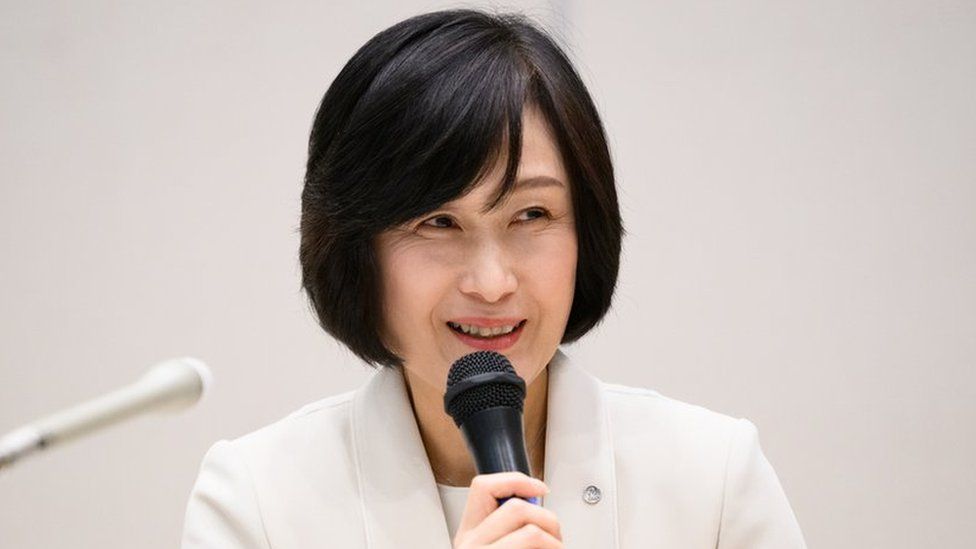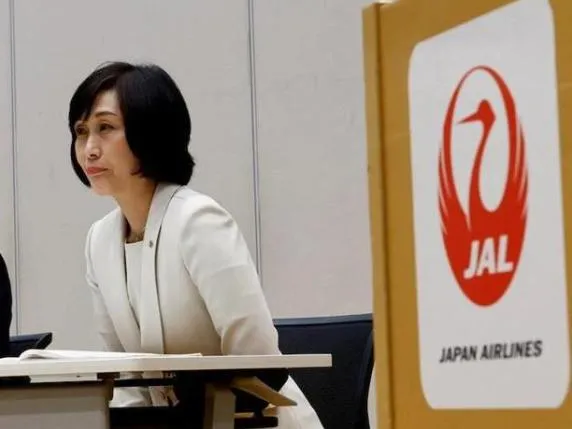When Mitsuko Tottori was named as the new boss of Japan Airlines (JAL) in January, it sent a shockwave across the country’s corporate sector.
Not only was Ms Tottori the carrier’s first female boss, she had also started her career as a member of cabin crew.
The headlines ranged from “first woman” and “first former flight attendant” to “unusual” and “no way!”
One website even described her as “an alien molecule” or “a mutant”, a reference to her having worked at Japan Air System (JAS), a much smaller airline that JAL bought two decades ago.
“I didn’t know about an alien mutant,” Ms Tottori laughs as she spoke to me from Tokyo.
In short, she was not from the elite group of businessmen that the carrier had customarily appointed to its top job.
Out of the last 10 men who held the post, seven were educated at the country’s top university. Ms Tottori is a graduate of a far less prestigious women-only junior college.
With Ms Tottori’s appointment, JAL has joined the less than 1% of Japan’s top companies led by women.

“I don’t think of myself as the first woman or the first former flight attendant. I want to act as an individual so I didn’t expect to get this much attention.”
“But I realise the public or our employees don’t necessarily see me like that,” she adds.
Her appointment also came just two weeks after JAL’s flight attendants were lauded for the successful evacuation of passengers from a plane that collided with a coast guard aircraft during landing.
Japan Airlines Flight 516 burst into flames after the collision on the runway at Tokyo’s Haneda airport.
Five of the six crew on the coastguard plane died and captain was injured. However, within minutes of the collision, all 379 people on board the Airbus A350-900 had safely escaped.
The rigorous training of the carrier’s flight attendants was suddenly in the spotlight.
As a former flight attendant herself, Ms Tottori learned the importance of aviation safety first hand.
Four months after she became a flight attendant in 1985, Japan Airlines was involved in the deadliest single aircraft accident in aviation history, which killed 520 people on Mount Osutaka.
“Every member of staff at JAL is given an opportunity to climb Mount Osutaka and speak to those who remember the accident,” Ms Tottori says.
“We also exhibit aircraft debris at our safety promotion centre so instead of just reading about it in a book, we look with our own eyes and feel with our own skin to learn about the accident.”
While her appointment in the top job came as a surprise, JAL has changed rapidly since it went bankrupt in 2010, in what was the country’s biggest ever corporate failure outside the financial sector.
The airline managed to continue flying thanks to major state-backed financial support and the business underwent a sweeping restructuring with a new board and management.
Its saviour was then-77-year-old retiree and ordained Buddhist monk, Kazuo Inamori. Without his transformational influence it is unlikely that someone like Ms Tottori could have become JAL’s leader.
I spoke to him in an interview in 2012. He did not mince his words, saying JAL was an arrogant firm that did not care about its customers.
Under Mr Inamori’s leadership the company promoted people from frontline operations, like pilots and engineers, rather than from bureaucratic posts.
“I felt very uncomfortable because the company didn’t feel like a private firm at all,” Mr Inamori, who died in 2022, told me. “Many former government officials used to get golden parachutes into the firm.”
JAL has come a long way since then, and the attention its first female president is receiving is not surprising.
The Japanese government has been trying for almost a decade to increase the number of female bosses in the country.
It now wants a third of leadership positions at major businesses to go to women by 2030, after failing to achieve the goal by 2020.
“It is not just about the corporate leaders’ mindset, but it is also important for women to have the confidence to become a manager,” says Ms Tottori.
“I hope my appointment would encourage other women to try things that they were afraid of trying before.”





